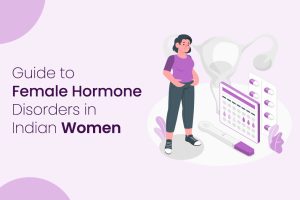Understanding the Impact of Age on Fertility in Women

Have you ever wondered how age impacts a woman’s journey to motherhood? Fertility is influenced by many factors, but age plays a particularly significant role. The choices and timing of pregnancy can shape a woman’s reproductive path. Whether you are planning to start a family or just curious about the science behind fertility, understanding how a woman’s fertility evolves with age is crucial. Let us unravel the complexities of fertility by age and explore what you should know to make informed decisions about your reproductive health.
What is Female Fertility?
Female fertility is largely dictated by a woman’s reproductive biology. Women are born with a finite number of eggs, known as their ovarian reserve, which declines gradually over time. Ovarian reserve refers to both the quantity and quality of a woman’s remaining eggs, which decreases naturally with age. This decline is a normal part of ageing but has significant implications for fertility. The quality of eggs also diminishes as women age, increasing the likelihood of genetic abnormalities in eggs. This decline in both egg quantity and quality directly impacts a woman’s ability to conceive and sustain a healthy pregnancy.
Fertility Trends by Age Group
1. Under 25:
In women under 25, fertility is generally at its peak. The ovarian reserve is relatively robust, and eggs are of optimal quality. However, lifestyle and health factors, such as smoking, diet, and exercise, can still affect fertility in women of this age. It is also crucial to consider health conditions like PCOS (Polycystic Ovary Syndrome), which can pose challenges in conceiving with PCOS even at this age.
2. Ages 25-35:
Between the ages of 25 and 35, women are considered to be in their most fertile period. This is a time when many women focus on their careers or pursue other life goals, delaying motherhood. Around age 32, there is a gradual decline in fertility due to a decrease in ovarian reserve. However, most women in this age group still have a good chance of getting pregnant naturally.
3. Ages 35-40:
From ages 35 to 40, the decline in fertility accelerates significantly. The quality and quantity of eggs are reduced substantially, increasing the risks of infertility, pregnancy complications, and genetic abnormalities in the offspring. Despite these challenges, many women in this age group can still conceive naturally, though some might need assistance through fertility treatments.
4. Over 40 Years of Age:
Fertility takes a sharp decline after age 40, making it increasingly difficult for women to conceive naturally. The likelihood of genetic abnormalities also rises, leading to an increased risk of miscarriages and pregnancy complications. However, assisted reproductive technologies (ART), such as in vitro fertilization, offer a viable path to parenthood for many women looking to get pregnant over 40.
Factors Affecting Fertility Beyond Age
While age is a significant determinant of fertility, it is not the only factor. Various other elements can impact a woman’s ability to conceive:
Lifestyle Choices:
Smoking, alcohol consumption, diet, and exercise habits can influence fertility. Maintaining a healthy lifestyle can enhance fertility at any age.
Health Conditions:
Conditions such as PCOS, endometriosis, and thyroid disorders can cause infertility in women, regardless of age.
Environmental Factors:
Exposure to certain chemicals and pollutants can affect fertility, potentially accelerating the decline in ovarian reserve.
It is important to note that while fertility generally declines with age, many women still conceive healthy pregnancies later in life, either naturally or with the help of fertility treatments.
Planning for Pregnancy: Understanding Your Options
Women who are concerned about their fertility by age can take proactive steps to plan for pregnancy. Fertility testing, which includes measuring hormone levels and assessing ovarian reserve, can provide valuable insights into reproductive health.
For those facing challenges in conceiving, consulting with a fertility specialist can open the door to various treatment options. Assisted reproductive procedures, such as IVF, can be highly effective for women with decreased ovarian reserve or other fertility challenges.
It is also important to consider fertility preservation options, such as egg freezing, for women who wish to delay pregnancy.
Final Thoughts
Understanding how age impacts women’s fertility by age is crucial for informed decision-making. While fertility generally declines with age, many factors beyond age can also influence a woman’s ability to conceive. With advancements in reproductive medicine, there are many options available for women who wish to become mothers later in life. By staying informed and planning accordingly, women can navigate their reproductive journey with confidence.
FAQs on Women’s Fertility by Age
Q: When is a woman’s fertility at its peak?
A: A woman’s fertility is typically at its highest between the ages of 25 and 35. During this period, women have the best chances of conceiving naturally, as their ovarian reserve is still relatively strong, and the quality of eggs is optimal.
Q: Can a woman have a healthy pregnancy at 37?
A: Having a baby at age 37 is definitely possible, though it is important to note that fertility declines more noticeably after age 35. However, many women still conceive and have healthy pregnancies at 37, sometimes with the assistance of fertility treatments.
Q: What is the age limit for IVF treatment in India?
A: In India, there is not a strict legal age cut-off for in vitro fertilization (IVF). However, most clinics advise against offering IVF to women above the age of 50, as the chances of a successful pregnancy decrease significantly with age.
Q: Does pregnancy at 30 come with high risks?
A: A pregnancy at age 30 is not generally considered high risk, as it is still within the most fertile age range. Most women at this age can conceive naturally and have healthy pregnancies, although individual health conditions and other factors can influence risks.










